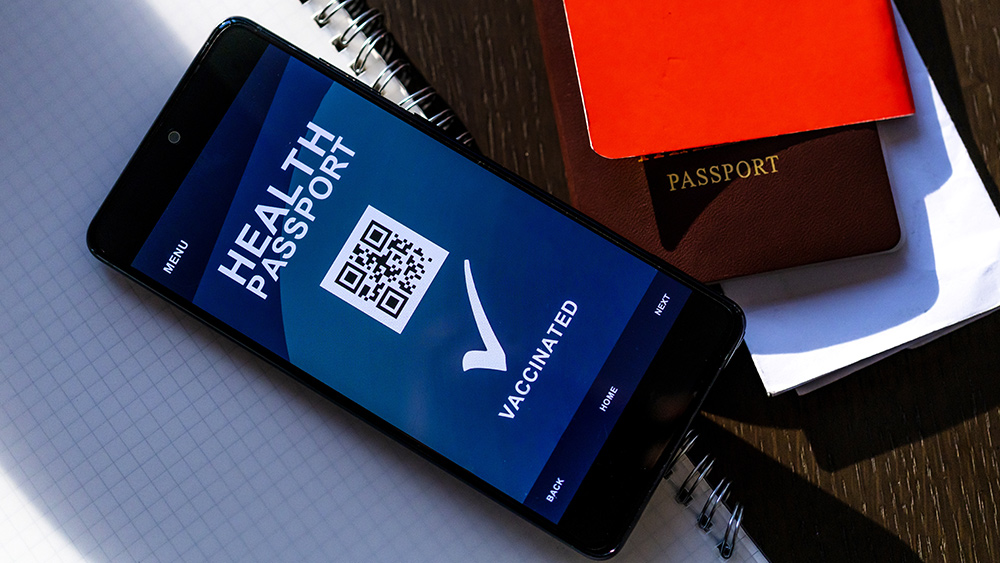
A Belgian court on Thursday, Dec. 2, ruled that Wuhan coronavirus (COVID-19) vaccine passports are illegal – thanks to the advocacy of non-profit pro-health freedom organization Notre Bon Droit (NBD).
The ruling was made in the region of Wallonia, a French-speaking region in Belgium with a population of around 3.5 million people. In the Court of First Instance in the Wallonian province of Namur, NBD got the court to rule that the region must fix the "apparent illegality" of its COVID Safe Ticket (CST) policy.
According to the court's judgment, the measures in the CST policy that restrict the freedom of Wallonia's residents were disproportionate to the supposed objective of controlling the spread of COVID-19.
The court added that the CST policy may be illegal under European Union law as it violates the right of Wallonians to protect their personal data. (Related: Despite vaccine passport schemes, COVID cases surging across Europe.)
If the region does not do as the court demands within a week, it will be fined 5,000 euros ($5,649) for each day of delay. The regional government must also pay back what the NBD spent on the legal proceedings.
"The court has ruled in our favor by conceding that the CST does not respect the principle of proportionality," said NBD founder Isabelle Duchateau in a video announcing the court's decision. She further accused Wallonia's CST policy of discriminating against the population "without objective and scientific justification."
Wallonia government insists vaccine passport policy is not illegal
The government of Wallonia, which is led by the left-wing Socialist Party, reacted to the court's decision by stating that it will appeal the ruling. The government insisted that the court's judgment "does not annul the Walloon decree" and that the region's CST policy remains in force.
According to the Belgian French-language news outlet Le Soir, the Namur Court of First Instance ruled in favor of NBD only because government representatives failed to appear at the court hearing on Nov. 16.
The letter from the court inviting the regional government to send representatives to the courthouse was delivered on Nov. 10. The next day was Armistice Day, which commemorates the end of World War I – a public holiday in Belgium. The holiday fell on a Thursday and most government offices remained closed the next day to give workers an extra-long weekend.
The following Monday, Nov. 15, was King's Feast, which celebrates the Belgian royal family. While this is not a national public holiday, most government offices are closed on this day.
Because of this, five days went by without the Wallonia government responding to the court's invitation. The hearing took place on Nov. 16 without their representatives.
Belgium's CST program was launched nationwide on Nov. 1. The vaccine passport policy required people to present proof that they are fully vaccinated, have recently tested negative for COVID-19 or have recovered from the coronavirus in the past six months.
Fulfilling one of the three requirements allows Belgians to enter various venues, including gyms, restaurants and events with more than 50 people. Violating CST regulations will result in fines of up to 500 euros ($564) for patrons and 2,500 euros ($2,821) for event organizers and business owners.
Vaccine passport policy may have contributed to rise in COVID-19 cases
NBD has been fighting against the CST ever since it was first proposed. The organization has an upcoming hearing against the Brussels-Capital Region's implementation of the CST.
In its arguments against the CST, NBD noted that "several experts have been skeptical about the advisability of the COVID Safe Ticket, given its inability to curb infection – of which the authorities seem to be aware, having recently admitted that the CST and vaccination could not lead to the abandonment of protective measures."
Some experts even believe that the vaccine passport policy has contributed to a rise in COVID-19 cases. Microbiologist Emmanuel Andre told the Dutch-language newspaper De Morgen that the CST "did not do what was expected of it."
"It did not so much increase the vaccination rate, but it did lead to more contacts, and thus indirectly to more infections – the two are connected," said Andre.
Alexander De Croo, the prime minister of Belgium, recently admitted that the number of occupied beds in intensive care units has doubled. "The red line has been crossed," he said.
But despite the clear failure of the vaccine passport policy, federal and regional health authorities continue to insist on these punitive COVID-19 measures. Last month, it started mandating vaccinations for healthcare workers and forcing businesses to close up shop and make employees work from home for four days each week until Dec. 19.
This vaccine mandate is proceeding despite the fact that the country is recording a record-breaking number of new COVID-19 infections and deaths. This new post-vaccine outbreak is occurring likely because more than 76 percent of Belgians are fully vaccinated, and 14 percent have already received booster doses.
Learn more about how COVID-19 vaccine policies are not protecting people against coronavirus at Vaccines.news.
Sources include:
Please contact us for more information.



















